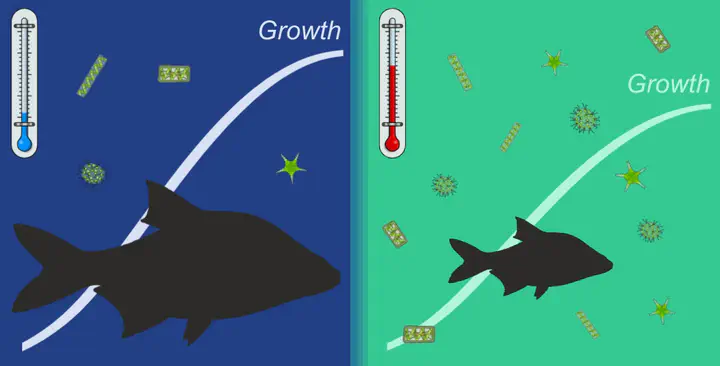Multi-decade analysis revealed the worsening of growth conditions of a generalist cyprinid fish in a temperate ecosystem
 Image credit: Allan T. Souza
Image credit: Allan T. Souza
Abstract
Fish populations play an important role in freshwater ecosystems and provide crucial ecosystem services such as nutrient recycling and food for humans and other animals. Given the importance of fish to both ecosystems and people, it is critical to monitor fish populations over time to ensure their health and sustainability. Population monitoring provides important data for scientific research aimed at understanding fish ecology and dynamics as well as the environmental drivers that influence individuals and the population. In this study, we focus on a long-term analysis of the bream (Abramis brama) population in the Římov reservoir in Czechia for four decades (1979 to 2020). This species is widely distributed across Europe and is an important component of many freshwater ecosystems. Based on a detailed analysis of somatic growth data from the bream population across different environmental conditions, we identified key drivers of somatic growth in this species. Our results indicate that temperature and chlorophyll content are key factors negatively influencing somatic growth in bream. Given the expected increase in water temperature, due to climate change, the bream population might face increasing thermal stress that will negatively affect its population dynamics and sustainability in central Europe. Due to its relevance, and many times dominance, in freshwater lentic ecosystems, a disturbance in bream population can have unpredictable ripple effects on the environment.